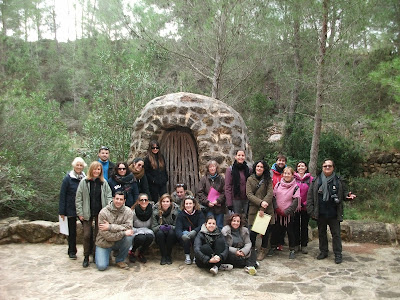Ens han acompanyat Elaine, Margaret i Sache que ens han facilitat disposar d'un model lingüístic autèntic.
L'estada s'ha dut a terme al camp d'aprenentatge de Sa cala de Sant Vicent i al llarg de la mateixa hem realitzat tallers de música, teatre, jocs, natura i un concurs de coneixements generals.
Aquí teniu el vídeo
Aquí teniu el vídeo

I aquest Wordle recull l'opinió dels participants que havien d'expressar en una sola paraula.











